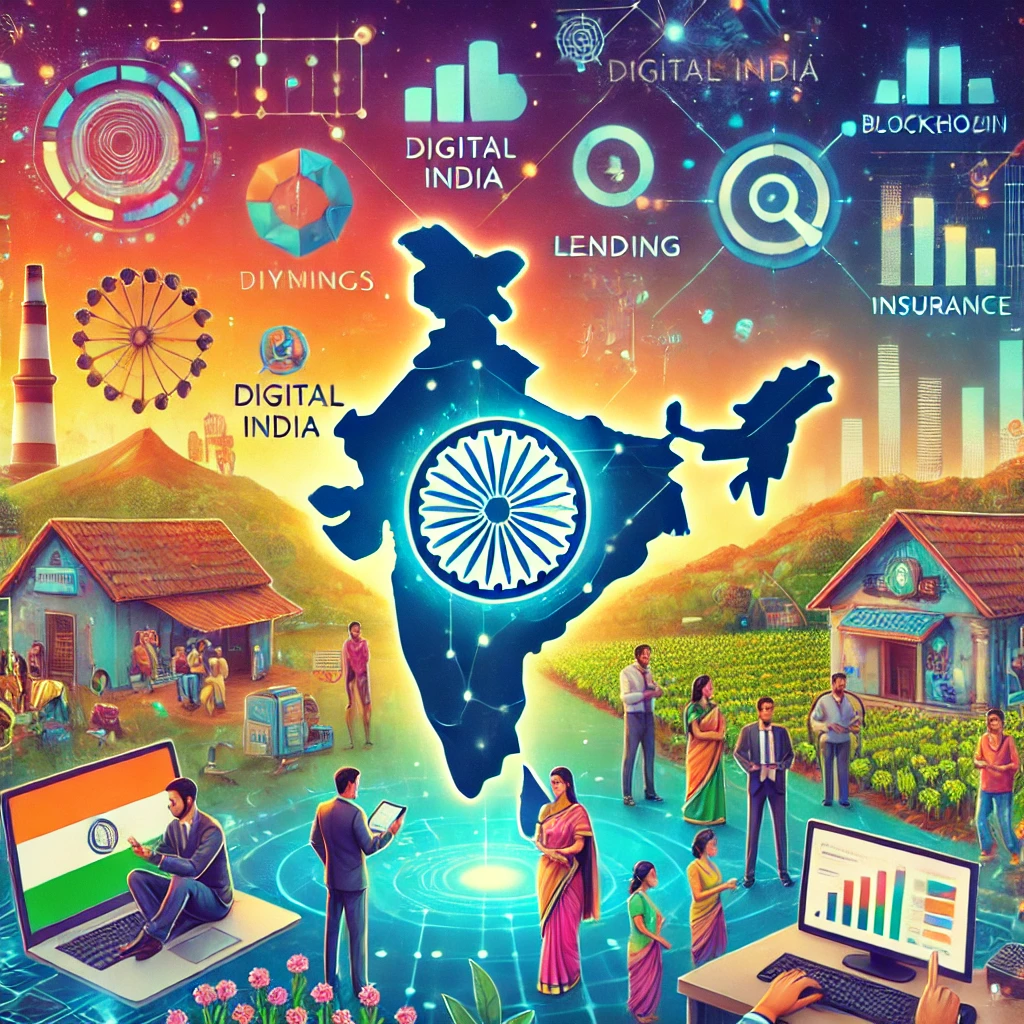The Growth & Opportunities of Fintech Startups in India
The Growth & Opportunities of Fintech Startups in India

Introduction
India is witnessing a fintech revolution. Over the past decade, fintech startups have transformed the way Indians access financial services. From digital payments to lending and insurance, fintech has reshaped the financial landscape, offering convenience and inclusivity. But what’s driving this boom, and what lies ahead for fintech in India? Let’s dive deeper.
Understanding Fintech
What is Fintech?
Fintech, short for financial technology, refers to innovative technologies aimed at improving and automating the delivery of financial services. These solutions are designed to help individuals and businesses manage their financial operations more efficiently.
Key Services Offered by Fintech Startups
- Digital Payments – UPI, mobile wallets, and contactless payments
- Lending Platforms – Instant loans and peer-to-peer lending
- Insurtech – Simplifying insurance processes and claims
- Wealth Management – Robo-advisors and investment apps
The Evolution of Fintech in India
Early Days of Fintech
Initially, fintech in India was limited to online banking and payment gateways. The real transformation began with the introduction of mobile wallets and digital payment platforms like Paytm.
Major Milestones and Government Initiatives
- 2016 Demonetization – Boosted digital payments
- Introduction of UPI – Unified Payments Interface changed the game
- Digital India Initiative – Promoted digital infrastructure
Current Market Scenario

Market Size and Growth Rate
India’s fintech market is expected to reach $1 trillion in throughput by 2030, driven by innovations in payments, lending, and insurance. The country is now home to over 2,000 fintech startups, making it one of the largest fintech hubs in the world.
Prominent Fintech Sectors
- Payments – Dominated by UPI, which accounts for billions of transactions monthly
- Lending – Instant loans through apps
- Insurtech – Affordable, accessible insurance solutions
- Wealthtech – Easy investment options for millennials
Factors Driving the Growth of Fintech in India
Rising Smartphone Penetration and Internet Usage
Affordable smartphones and cheaper internet plans have enabled millions to access fintech services.
Supportive Government Policies
Policies like Digital India and the JAM (Jan Dhan-Aadhaar-Mobile) trinity have laid a strong foundation for fintech growth.
Changing Consumer Preferences
Today’s consumers prefer convenience, which fintech provides through user-friendly apps and instant services.
Opportunities for Fintech Startups
Financial Inclusion
With a significant portion of India’s population still unbanked, fintech startups can offer services to bring them into the financial fold.

Untapped Rural Markets
Rural India presents vast opportunities for fintech startups to offer microloans, insurance, and savings solutions.
Collaboration with Traditional Banks
Many fintech startups collaborate with banks to offer co-branded services, bridging the gap between traditional and digital finance.
Challenges Faced by Fintech Startups
Regulatory Hurdles
Navigating India’s complex regulatory environment can be challenging for fintech startups.
Data Security and Privacy Concerns
With the rise of digital transactions comes the risk of data breaches and cyberattacks.
Competition
The fintech space is crowded, making it hard for new startups to stand out.
Successful Indian Fintech Startups
Paytm
A pioneer in digital payments, Paytm offers a range of services from mobile recharges to bill payments and loans.
Razorpay
Focused on providing seamless payment solutions for businesses, Razorpay has become a leading player in the B2B space.
Cred
Cred rewards users for timely credit card payments and has grown rapidly by offering exclusive offers and financial insights.
Role of Technology in Fintech Growth
Artificial Intelligence and Machine Learning
AI and ML are being used for personalized financial advice and fraud detection.
Blockchain Technology
Blockchain is revolutionizing fintech by enhancing security and transparency in transactions.
Big Data and Analytics
Big data helps fintech companies understand consumer behavior and offer tailored services.
Government Initiatives and Regulations
Digital India Initiative
UPI and Aadhaar Integration
UPI and Aadhaar have simplified digital transactions and enabled instant verification.
Investment and Funding in Fintech
Venture Capital Trends
Investors are betting big on Indian fintech startups, with several receiving multimillion-dollar funding rounds.
Notable Investments
Companies like Paytm, PhonePe, and PolicyBazaar have secured significant investments, fueling their growth.
Future Trends in the Fintech Industry
Rise of Neobanks
Digital-only banks are gaining traction for their low-cost, high-convenience services.
Increased Focus on Cybersecurity
With growing digital transactions, fintech startups are prioritizing security to build customer trust.
Expansion of Digital Lending
The digital lending market is expected to grow rapidly as more consumers prefer instant, paperless loans.
Impact of Fintech on the Indian Economy
Boost to Entrepreneurship
Fintech has enabled small businesses to access credit and grow faster.
Job Creation
The fintech sector is creating thousands of jobs, especially in technology and customer support.
How to Start a Fintech Startup in India
Steps to Get Started
- Identify a niche market
- Ensure regulatory compliance
- Develop a secure and user-friendly app
Tips for Success
- Focus on customer experience
- Prioritize data security
- Build strong partnerships
Conclusion
The fintech landscape in India is vibrant and full of opportunities. Startups that can navigate challenges and leverage technology will be at the forefront of this digital revolution. As India continues to embrace digital financial solutions, the future of fintech looks brighter than ever.
FAQs
-
What is fintech?
Fintech refers to technology-driven financial services that improve traditional banking processes. -
Why is fintech growing in India?
Factors like smartphone penetration, supportive government policies, and changing consumer behavior are driving fintech growth. -
What are the major sectors in fintech?
Major sectors include payments, lending, insurtech, and wealth management. -
How do fintech startups make money?
They earn through transaction fees, lending interest, premium subscriptions, and partnerships. -
What is the future of fintech in India?
The future is promising, with trends like neobanks, blockchain adoption, and digital lending leading the way.
Also Read This :
2025 Work-from-Home Startup Ideas You Can Start Today
Top 10 Funding Tips for Your Startup
The Growth & Opportunities of Fintech Startups in India
Deepseek AI: Revolutionizing Data Search and Analysis

